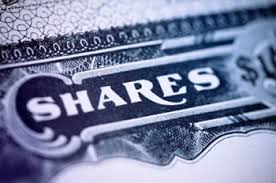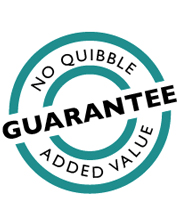Share buy-backs explained
 In recent years, share buy-backs have become increasingly popular for two key reasons:
In recent years, share buy-backs have become increasingly popular for two key reasons:
- Demands from activist shareholders displeased by companies hoarding cash
- Management eager to improve key financial performance measures such as earning per share (EPS) and return on equity (ROE), especially when incentivised by their remuneration packages
One of the arguments frequently articulated in support of share buy-backs is that they create shareholder value. But do they?
There are two ways in which a company can return cash to its shareholders:
- Dividends
- Share buy-backs
In theory, there is no difference between these two options. Neither creates nor destroys shareholder value. This is because the value of a company attributable to its shareholders* depends on:
- Its future expected free cash flows
- Its average weighted cost of capital (WACC)
- Its borrowings
*The value of a company attributable to its shareholders is the summation of its future expected free cash flows discounted by its WACC minus its borrowings.
As payments of dividends and share buy-backs from surplus cash have no effect on any of these three components, they have a neutral effect on shareholder value.
However, in practice, things are more complex.
The first complexity is that dividends are distributed to all shareholders, whereas cash used to repurchase shares in the open market only goes to those shareholders choosing to sell. Those selling during a buy-back exchange shares for cash, whereas those choosing to retain, benefit from an increase in the share price. The share price increases because the company now has fewer shares across which an unchanged value attributable to its shareholders is spread. The complexity that arises is because:
- Dividends and capital gains (or losses) are treated differently for taxation.
- Different shareholders have different marginal tax rates, both income and capital gains.
Secondly, when returning cash to shareholders by either mechanism, a company is implicitly saying that it believes this to be the best use of the available cash at this time. This means a company has either:
- Run out of value creating investment opportunities or
- Chosen to defer them to a later date or not at all
If the former, returning cash to shareholders is the best use at this time. If the latter, the value created by those investments that are delayed or postponed is reduced, thereby destroying shareholder value. This is because cash today is always worth more than the same amount of cash delayed until tomorrow.
The third complexity hinges on how the return of cash is financed. If funded from surplus cash, there is no effect on shareholder value. However, if a company borrows to fund a share buy-back, there is a positive effect for two reasons:
- Firstly, debt is an allowable cost for taxation. Thus, when borrowing, a company reduces its corporation tax bill which increases its free cash flows for the duration of the loan.
- Secondly, when borrowing, a company increases its debt to equity ratio, and as debt finance is cheaper than equity finance, both contribute to a reduction in its WACC.
The combination of higher future expected free cash flows discounted by a lower WACC in most instances more than offset the increase in borrowings, hence shareholder value is created. However, a company has to be careful that the increased borrowings do not endanger its balance sheet.
And finally, time to dispel a commonly believed myth. It is frequently advocated that the best time for a company to buy-back its shares is when it regards the price to be depressed below intrinsic ‘fair value.’ At such times, all that happens is value is transferred from those shareholders opting to sell cheaply to those who buy and to those who decide to retain. All other things being equal, the impact on aggregate shareholder value is neutral.
Share buy-backs have become a regular occurrence. In theory, their impact is neutral on shareholder value. In practice, however, the consequences are more complex.
To discuss your business critical issue
Please call Paul New on 020 8390 9972 or 07790 501225 or send a message.







